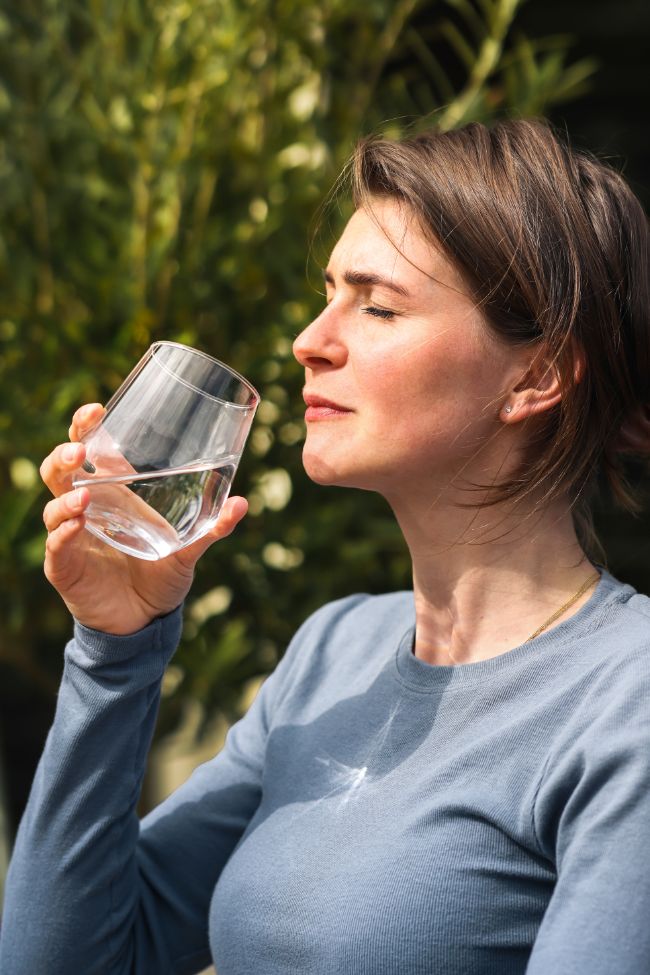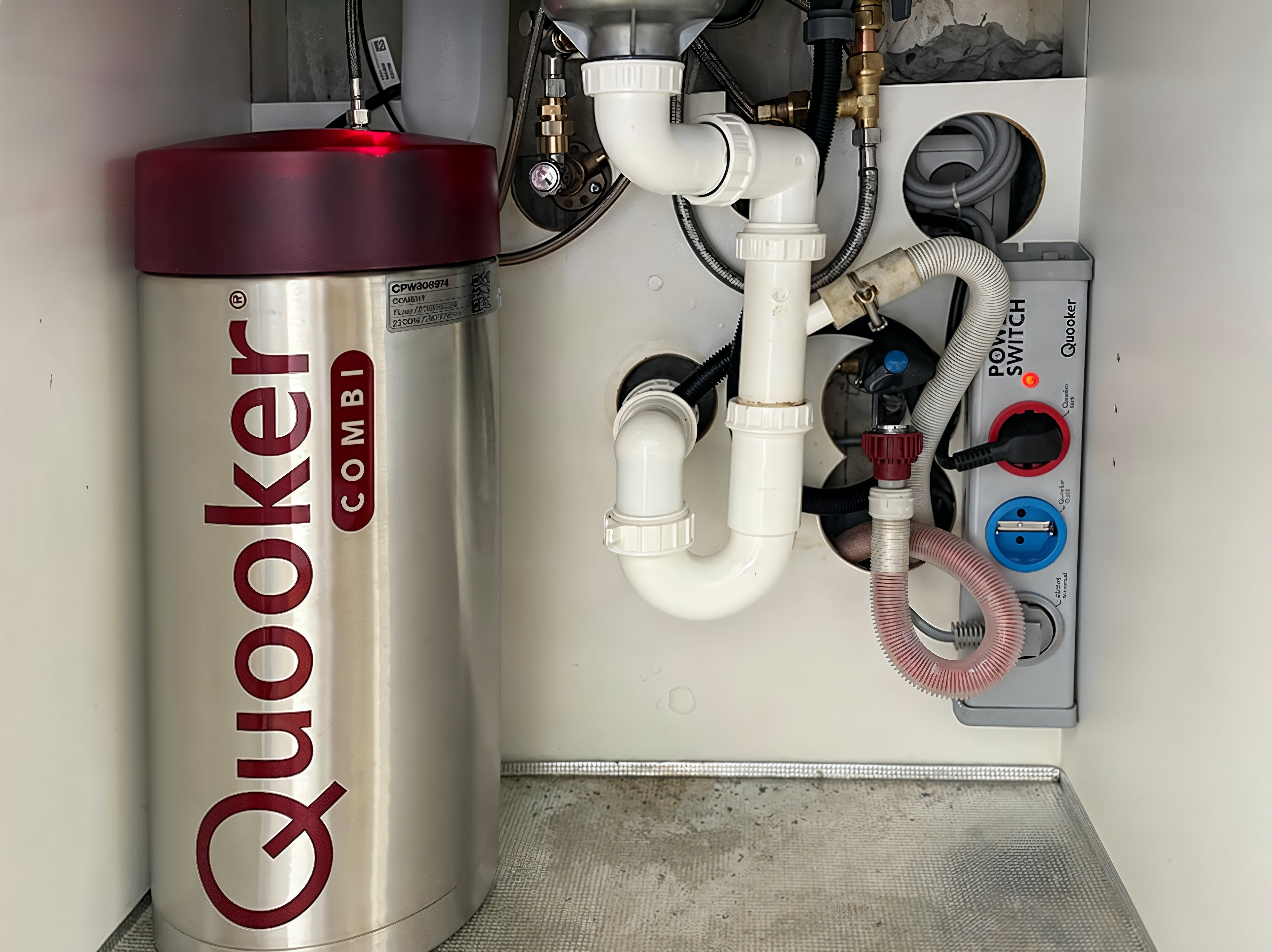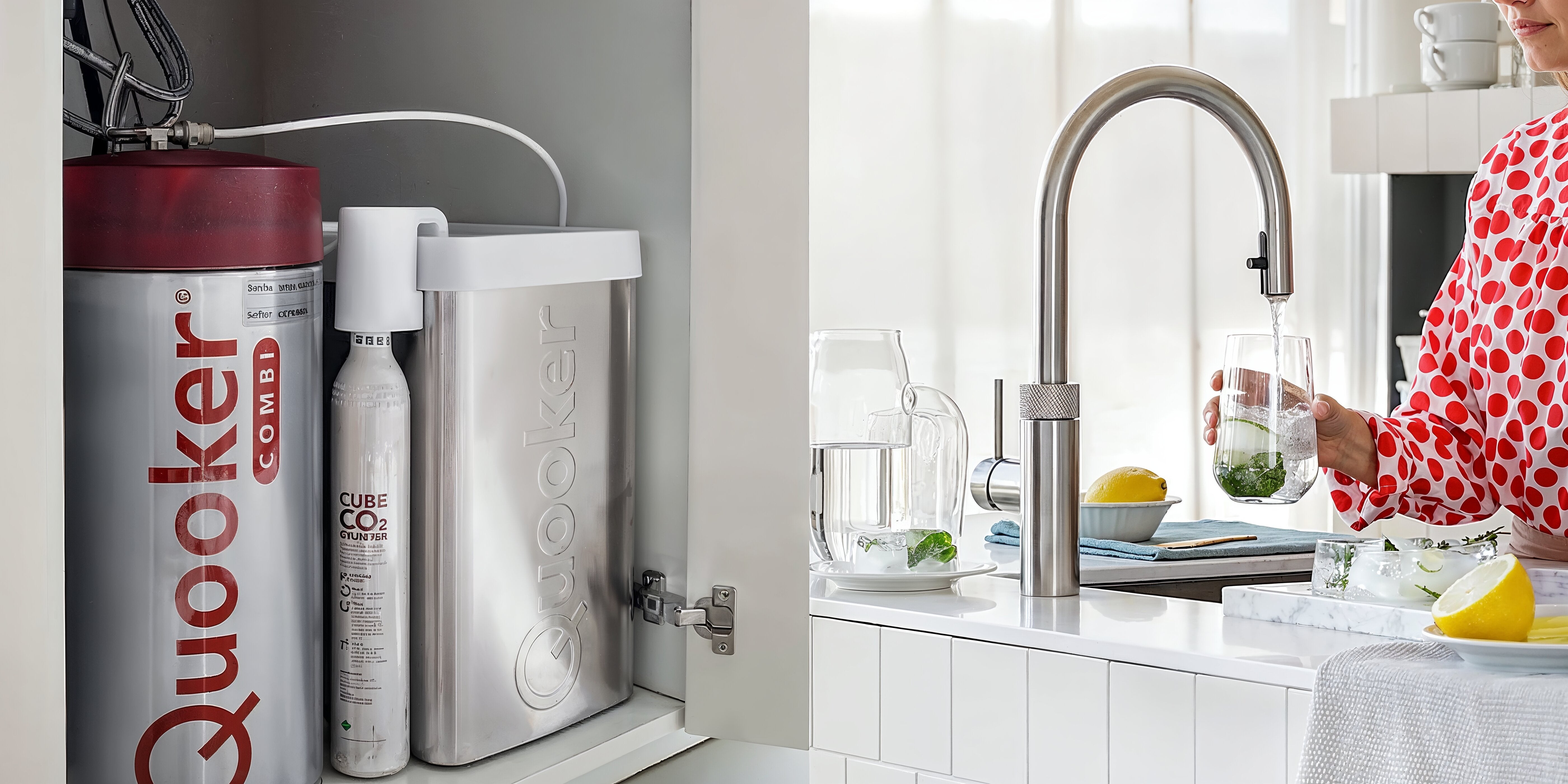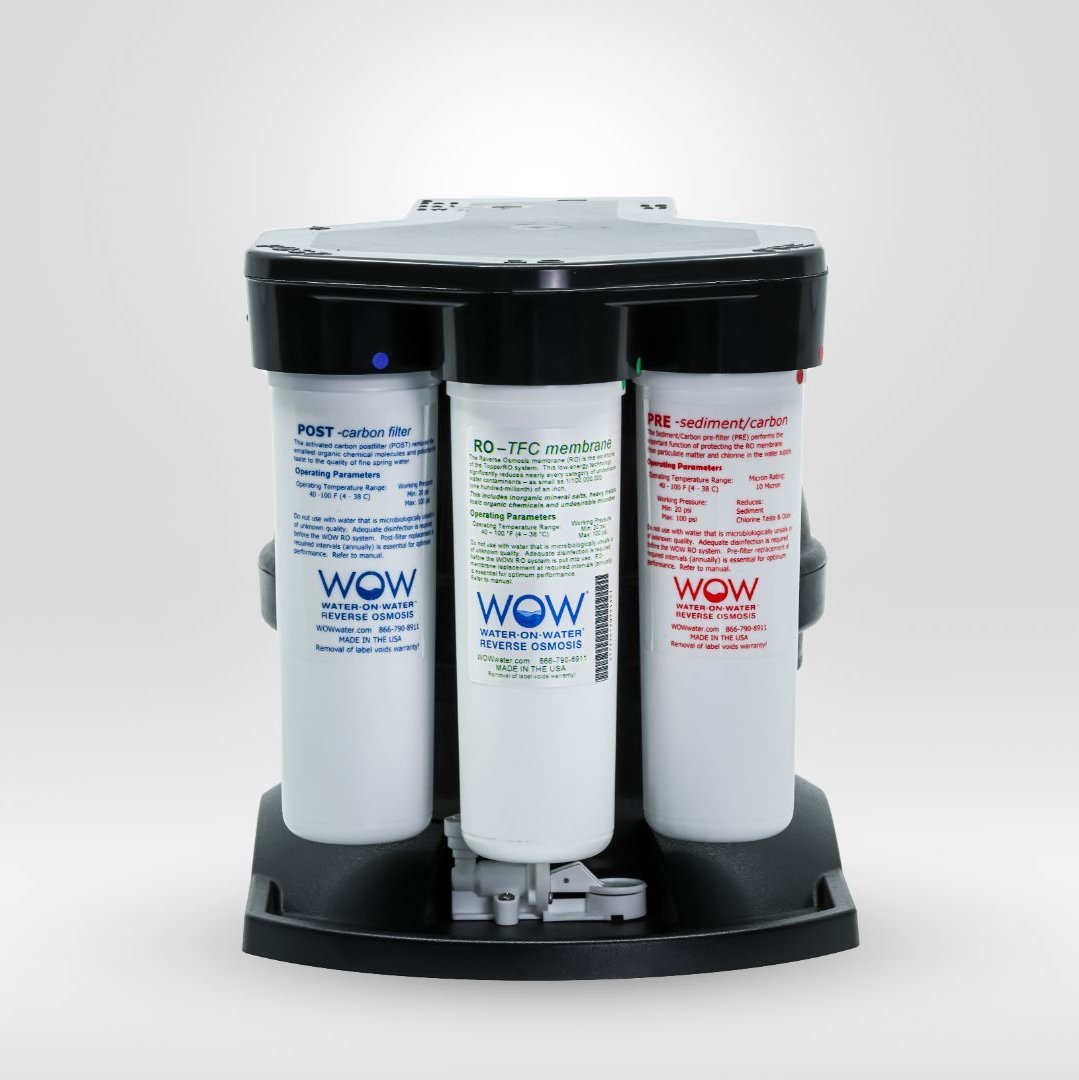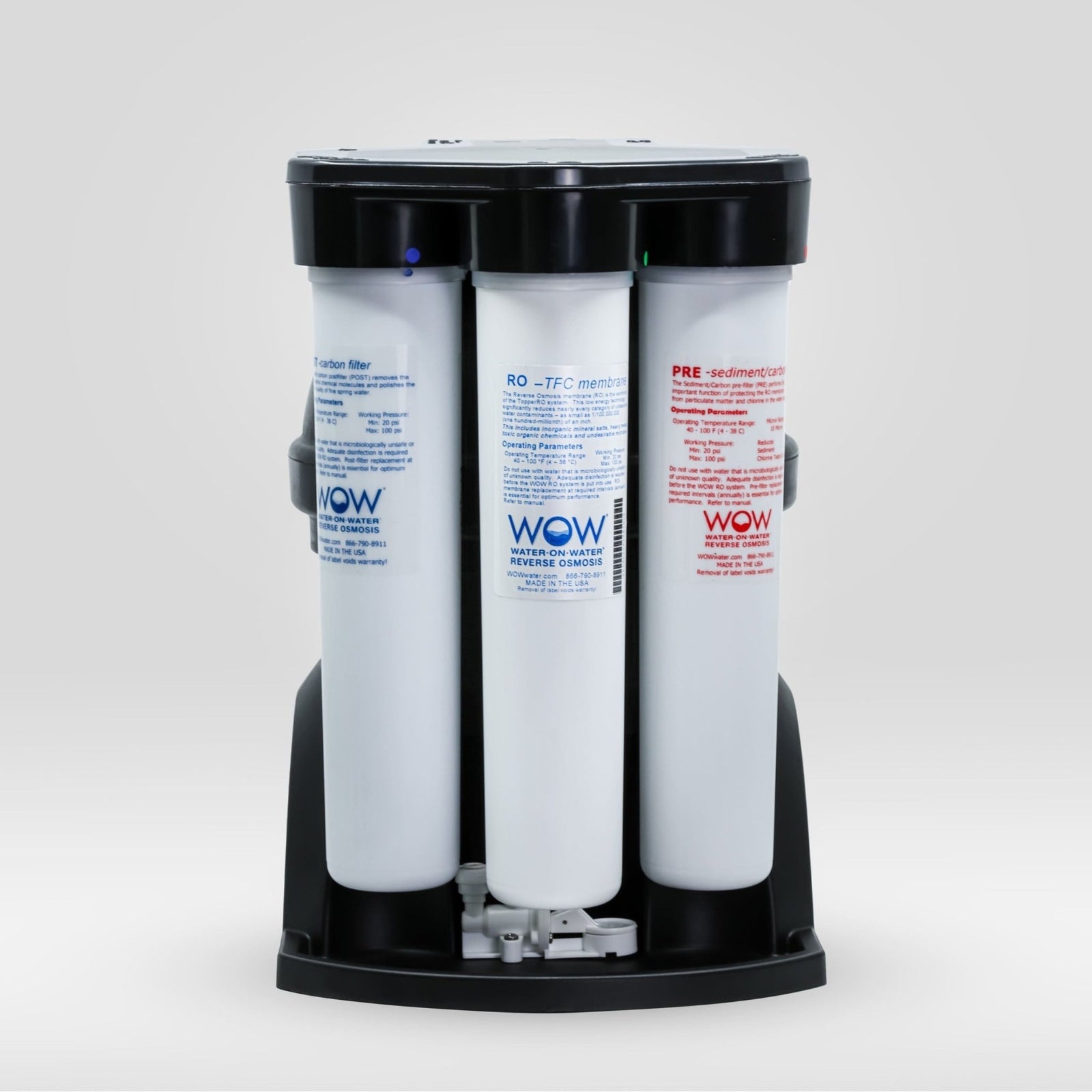Doctors are increasingly recommending filtered water because tap water often contains contaminants that can be harmful to health. Medical professionals point to the presence of heavy metals, pharmaceutical residues, bacteria, and chemicals in unfiltered water. These substances can weaken the immune system and cause various health problems, especially in vulnerable groups such as children, the elderly, and people with chronic conditions. Modern home water filtration systems, especially those using reverse osmosis technology, remove up to 99% of these unwanted substances and provide spring-quality water.
Why do doctors recommend filtered water for daily use?
Medical professionals recommend filtered water for its proven health benefits and effective removal of harmful substances. Tap water can contain lead, chlorine, pesticides, and pharmaceutical residues that can cause long-term health problems. These contaminants enter our drinking water through old pipes, agricultural activities, and wastewater.
The immune system benefits significantly from pure water. Doctors observe that patients who switch to filtered water experience fewer infections, allergic reactions, and digestive problems. The removal of chlorine and chlorine compounds reduces the burden on the liver and kidneys, organs responsible for the body's natural detoxification.
Filtered water is especially essential for children. Their developing bodies are more sensitive to toxins and heavy metals. Lead, for example, can disrupt neurological development, while hormone disruptors can affect growth. By filtering these substances from drinking water, parents protect their children's health in a simple yet effective way.
What health problems can arise from unfiltered tap water?
Unfiltered tap water can cause various health problems, ranging from acute gastrointestinal complaints to long-term chronic conditions. Bacteria and parasites in contaminated water lead to immediate symptoms such as diarrhea, nausea, and abdominal pain. These complaints are particularly common in people with weakened immune systems.
Long-term effects of chemical pollution are often more serious. Heavy metals like lead and mercury accumulate in the body and can cause neurological damage, kidney problems, and developmental disorders. Pesticides and industrial chemicals are linked to hormone disruption, fertility problems, and certain types of cancer.
Vulnerable groups are at extra risk:
- Pregnant women: contaminants can affect fetal development
- Babies and young children: their developing organs are more sensitive to toxins
- Elderly: Reduced kidney function means less efficient removal of harmful substances
- People with autoimmune diseases: their bodies react more strongly to pro-inflammatory substances
Allergic reactions to chlorine and other disinfectants are becoming increasingly common. Symptoms range from skin irritation and eczema to respiratory problems. Doctors are seeing a significant improvement in patients who switch to filtered water .
How does water quality affect chronic conditions, according to doctors?
Doctors see a direct link between water quality and the progression of chronic conditions. Patients with kidney problems experience relief when they switch to filtered water, because their kidneys don't have to work as hard to remove toxins. The reduced workload results in improved kidney function and less fatigue.
Water quality plays a crucial role in skin conditions like eczema, psoriasis, and acne. Chlorine and other chemicals in tap water disrupt the natural skin barrier and exacerbate inflammation. Dermatologists therefore recommend filtered water for both drinking and skin care. Patients often report improvements in their skin condition within a few weeks.
Digestive disorders respond positively to clean water. Irritable bowel syndrome (IBS), chronic intestinal inflammation, and stomach complaints are reduced when irritants are filtered from drinking water. Gut flora, essential for good health, thrives better without the disruptive effects of chlorine and heavy metals.
| Chronic condition | Effect of unfiltered water | Improvement with filtered water |
|---|---|---|
| Kidney problems | Additional burden due to toxins | Reduced workload, better job performance |
| Skin conditions | Disrupted skin barrier, inflammation | Restore natural balance, less irritation |
| Digestive disorders | Disturbed intestinal flora, irritation | Healthier intestinal flora, fewer complaints |
| Autoimmune diseases | Increased inflammatory responses | Reduced inflammatory markers |
What are the benefits of reverse osmosis according to medical professionals?
Medical professionals prefer reverse osmosis technology for its superior filtration capacity. This method removes up to 99% of all contaminants, including viruses, bacteria, heavy metals, and chemical compounds. The semi-permeable membrane allows only water molecules to pass through, resulting in a result comparable to distilled water, but with added essential minerals.
Its effectiveness against microorganisms makes reverse osmosis particularly valuable. While other filtration techniques fail to remove viruses and small bacteria, this technology offers complete protection. This is crucial for people with weakened immune systems, such as cancer patients undergoing chemotherapy or transplant patients.
Comparison with other filtration techniques shows clear advantages:
- Carbon filters: remove chlorine and improve taste, but allow heavy metals and bacteria to pass through
- UV disinfection: kills microorganisms but does not remove chemicals or metals
- Ion exchangers: effective against limescale but limited against other contaminants
- Reverse osmosis: complete removal of virtually all unwanted substances
Modern systems like the ones we supply combine multiple filtration techniques with reverse osmosis at their core. The multi-stage filtration process, featuring a sediment filter, carbon filter, and RO membrane, guarantees optimal water purification. The addition of a remineralization filter ensures the correct mineral balance and a natural, smooth taste.
When is filtered water extra important, according to doctors?
Doctors identify specific situations in which filtered water is not only recommended but essential. When immunity is weakened, such as during flu season or after surgery, the body is less able to defend itself against pathogens in water. Filtered water eliminates this risk and supports the recovery process.
Water quality plays a crucial role when taking medication. Certain medications place additional strain on the liver and kidneys, organs also responsible for filtering toxins from water. Drinking pre-filtered water reduces the overall burden on these organs. Antibiotics work more effectively when the body doesn't have to simultaneously fight other bacteria from contaminated water.
Life stages where filtered water is extra important:
- Pregnancy and breastfeeding: protecting mother and child against harmful substances
- Early years: supporting development without toxic burden
- Sports activities: optimal hydration without pro-inflammatory substances
- Old age: compensation for reduced organ function
- Recovery from illness: faster healing through pure water
Preventive healthcare starts with the basics: clean drinking water. Doctors observe that people who consistently drink filtered water get sick less often, sleep better, and have more energy. Investing in a water filtration system pays for itself in reduced healthcare costs and improved quality of life.
Important medical recommendations for healthy drinking water
Medical guidelines for water consumption are clear: adults need 2 to 2.5 liters of water daily, depending on activity level and climate. This quantity must be of optimal quality to maximize health benefits. Doctors emphasize that it's not just the quantity but especially the quality of water that matters.
Drinking water quality standards according to medical professionals:
- No detectable bacteria or viruses
- Heavy metals below detection limit
- pH value between 6.5 and 8.5
- Minimal presence of chlorine and by-products
- Retention of essential minerals such as calcium and magnesium
Practical implementation of water filtration begins with choosing the right system. A complete water filtration system with reverse osmosis technology offers the assurance of pure water. Installation is simple and maintenance is minimal, making healthy drinking water accessible to everyone.
For optimal health, doctors recommend using filtered water for all consumption: drinking, cooking, and making tea and coffee. Washing fruits and vegetables with filtered water also reduces the absorption of pesticides and other contaminants. These simple adjustments in daily life can make a significant difference to our long-term health.
The medical consensus is clear: filtered water isn't a luxury but a necessity for optimal health. With modern home water filtration systems, everyone has access to spring-quality water, straight from the tap. Investing in health starts with the basics, and that basics are pure water.
